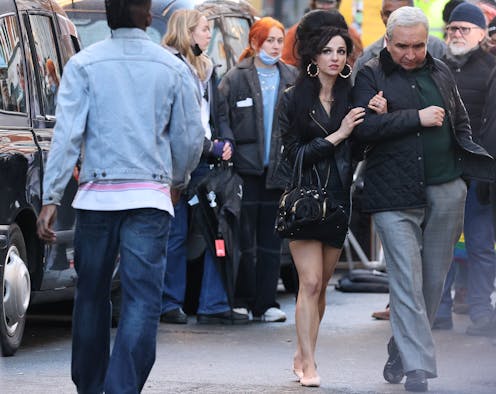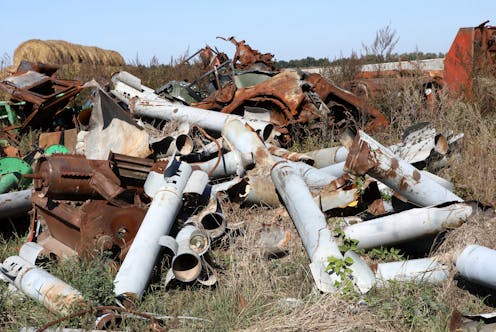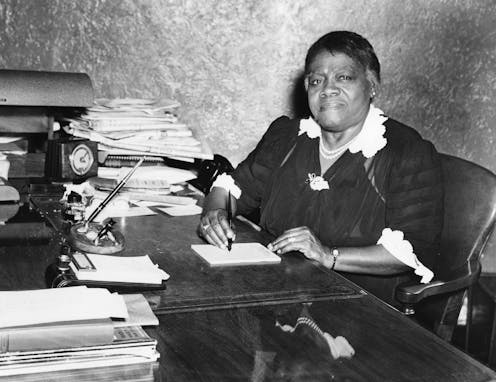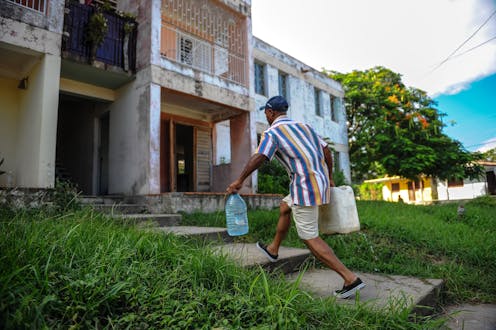Could you cope with a shock to your bank balance? 5 ways to check you are financially resilient

Imagine the dentist has just said you urgently need a A$2,000 dental crown. A week later, a pipe in your bathroom bursts, causing $8,000 worth of damage. Suddenly, you’ve been hit with a $10,000 financial shock.
As the cost-of-living crisis plunges more households into financial uncertainty and at least one-third of Australians struggle to make ends meet, it’s more important than ever to ask yourself: how financially resilient am I?
Being financially resilient means you aren’t left financially devastated when an expensive emergency creeps up on you. Here are five key signs of financial resilience.
Read more: Kids and money: five ways to start the conversation
1. You have a plan for what you’d do if you suddenly lost your salary
Financial resilience means having a plan to fall back on during tough times. This extends to how you’d make money if you lost your job.
In practice, that means things like making sure your skills and contacts are kept up to date so you can more easily find a new job. You might also consider whether a “side hustle” job such as tutoring could work for you in the short term, and how you’d put that plan into practice if needed. Perhaps you have a spare room in your home you could rent out for a period of time if you lost your salary.
Those examples won’t work for everyone, of course, but it’s still worth asking yourself the question: what would I do if I lost my salary tomorrow?
2. You have enough liquid assets to meet an unexpected financial expense
Liquid assets means money that can be accessed quickly and easily to overcome an unplanned financial expense. Savings are a good example. They provide a buffer so you can cope in the short term if a financial shock strikes. The federal government’s Moneysmart website suggests you aim to have enough in your emergency savings fund to cover three months of expenses.
Having an offset account as part of a mortgage is another option that provides a buffer. Putting money in an offset account helps you save while reducing the amount of interest on a home loan. You can still access the money in an offset account at any time.
3. You have bought the right financial products, such as insurance
Financial products, such as insurance, hedge against potential losses.
Personal insurance is important because it provides income in the event of death, illness or injury. Examples include:
life insurance (which pays out to your beneficiaries, such as your partner or children, when you die)
total and permanent disability insurance (which means you may get some money if you acquire a disability that prevents you from working)
income protection (which provides you with an income if you can no longer work)
trauma cover (which covers a life-changing illness or injury, such as cancer or a stroke).
Check if your superannuation has any of these insurances included in it. Research has found that many Australians are underinsured.
4. You can still pay your debts when times are tough
Being able to borrow money can help when you’re in a tight spot. But knowing where to borrow from, how much to borrow and how to manage debt repayments is crucial.
Financially resilient people use debt responsibly. That means:
not using debt for frivolous expenses like after-work drinks
staying away from private money lenders
being cautious about buy-now-pay-later services
watching out for debts with high interest rates, such as payday loans and credit card debt
maintaining debt repayments consistently.
If you’re having debt problems, talk to your lender about renegotiating your repayment arrangements, or contact the National Debt Helpline on 1800 007 007.
5. You are financially literate
Being financially literate means you can assess the benefits and risks of using savings or taking out debt to meet an unplanned financial need.
As I have written before on The Conversation, key signs of financial literacy include tracking your cashflow, building a budget, as well as understanding what debts you have and which to pay first.
It also means storing your money across different places (such as superannuation, savings accounts, property and the share market) and understanding how financial assets like cash, shares and bonds work.
Being aware of your financial strengths and weaknesses, and having financial goals is also important.
Nobody is born knowing how to make sound financial decisions; it’s a skill that must be learned.
It’s good to think about the resources you would draw upon to help get yourself out of a difficult financial situation – well before disaster strikes.
Read more: Battling to make ends meet? Financial planning expert offers 5 tips on how to build your budget
Authors: The Conversation














